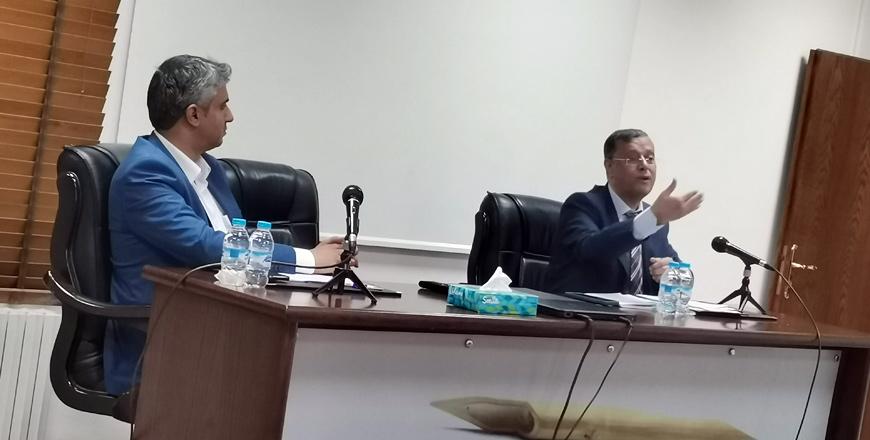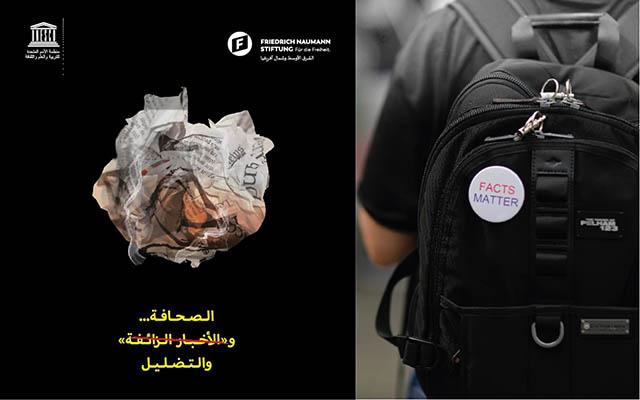You are here
Seminar hears of impact of disinformation
By Rayya Al Muheisen - Oct 13,2021 - Last updated at Oct 13,2021

Media expert Taha Darweesh speaks during a seminar organised by the Jordan Media Institute on Wednesday (Photo by Rayya Al Muheisen)
AMMAN — The COVID pandemic has resulted in an “infodemic”, noted a media expert during a seminar organised by the Jordan Media Institute (JMI) on Wednesday.
Speaking during the discussions on the impact of COVID-19 on misinformation and hate speech in the Kingdom, keynote speaker Taha Darweesh, a journalism professor, highlighted the “critical distinction” among misinformation, disinformation and fake news.
Darweesh defined “misinformation” as the act of presenting false facts to the audience without the intent to deceive, whereas he defined “disinformation” as presenting false information that is intentionally intended to mislead the audience.
“The COVID-19 pandemic has introduced a state of exception, the pandemic has been called the ‘great accelerator’ of digital transformation, cybercrime and online disinformation and fake news,” he said.
In today’s world, misinformation spreads easily as a result of technology, and disinformation can be “very powerful, destructive and divisive”, Darweesh added.
He assured the audience during the seminar that “hate speech is not common in Jordan”.
The Akeed initiative was the first media observatory found in 2014, by Jordan Media Institute, said Darweesh.
A “whole-of-society approach is needed”, he said, adding that it will help build public trust in media bodies and ensure the information they receive is reliable.
“In the case of COVID-19, information can be a life-saver, but only if it’s true. However, wrong information can mislead people and in some cases cause depression,” Darweesh said.
Darweesh noted that “user generated content” is here to stay and is an important component of the media coverage.
Related Articles
AMMAN — On World Press Freedom Day, which falls on May 3, UNESCO in Jordan has announced that it is fighting back against disinformation and
AMMAN — In today’s digital age, fake accounts have become a major tool for spreading false information, causing division, and eroding public
AMMAN — United Nations Secretary General Antonio Guterres will launch a groundbreaking global online action on Wednesday, calling on people
















